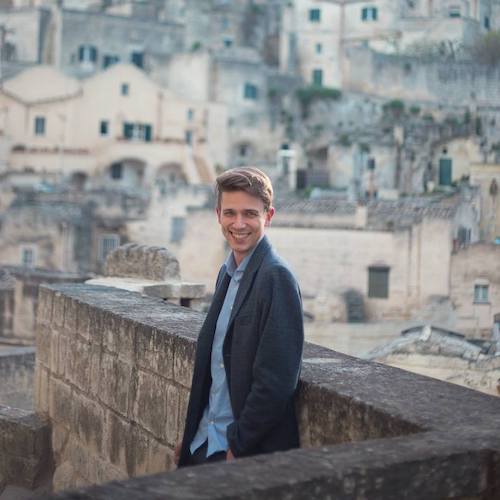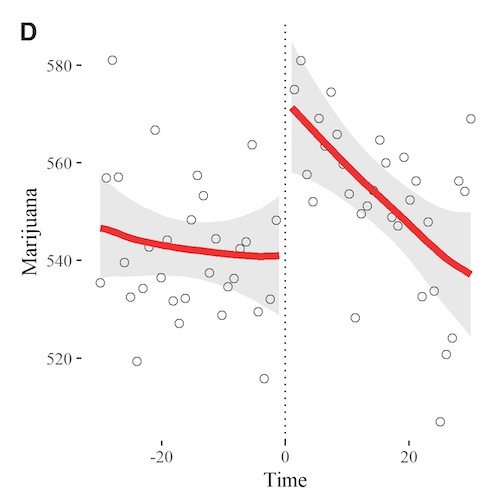Diego Zambiasi wins IEA Conniffe Prize
News and Events
- Events
- Celebration of Peter Neary
- Diego Zambiasi wins IEA Conniffe Prize
- Diane Pelly wins Main Conference Award at the Newcastle Economics Research and Development Conference
- Peter Neary Condolence Book
- Brain for Business Podcast by Dr Vessela Daskalova
- Visit by EIB President Dr Werner Hoyer
- Award to Professor Aisling Reynolds-Feighan
- Michael Wright attends Model WTO 2022 conference in Geneva
- Professor Ariel Rubinstein Lecture
- School of Economics Awards
- Orla Doyle Elected to IEA Presidency
- Energy Economics PhD Fellowship Opportunity
- ECA Talk on Forced Displacement
- IZA World of Labor Panel Discussion
- The Young Irish Economists Seminar Series (YIESS)
- Assistant professor post in economics of the natural resources & environment
- Two assistant professor posts in Economics
- Medals and Awards 2022
- Ben Elsner presents joint work with Emanuele Albarosa (IOM) at the UNHCR policy event
- Health Workshop in Malawi
- Dr Fabrice Kampfen selected for Young Academy of Ireland (YAI)
- Cormac Ó Gráda Award Winner
- David Madden and Jane Dooley paper wins Brendan Walsh Prize
- Workshop at the Central Bank of Ireland
- Prof Rodney Thom former colleague and HOS passed away on August 14th
- New MSc Economics and Data Analytics Launch
- PhD News September 2023
- Margaret Samahita at Kilkenomics
- Medals and Awards
- IPECE Workshop
- EMS Distinguished Lecture
- Networking Events for MSc Students
PhD candidate Diego Zambiasi wins IEA Conniffe Prize

Congratulation to UCD Economics PhD student Diego Zambiasi on winning Irish Economic Association 2021 Denis Conniffe Prize awarded for Best Paper by a Young Economist.
'Drugs on the web, crime in the streets:
The impact of Dark Web marketplaces on street crime'

What happens when websites that sell illicit drugs online on the Dark Web get shut down? Do operators in the illicit drugs market start going back to the streets? Does this also cause an increase in property and violent crimes? The paper “Drugs on the web, crime in the Streets” ((opens in a new window)https://researchrepository.ucd.ie/handle/10197/11645) answers this question by looking at detailed data about crime in the US and combining it with information about shutdowns of Dark Web marketplaces.
Diego finds that online drug trading is closely connected to street drug trading. The two markets act as substitutes, with trade moving back to the streets when Dark Web marketplaces get shut down. Drug trade, however, quickly moves back online as soon as new Dark Web marketplaces open and gain the trust of buyers and sellers of substances. What is driving this result are crimes connected with the supply of drugs, such as distribution and transportation of illicit substances. An indication that it is harder for drug sellers to gain the trust of buyers after an unexpected shutdown of a Dark Web marketplace.
To rationalize these findings, you need to think about the illicit drugs market as a market that looks like the labor market ((opens in a new window)http://nicolapersico.com/files/drugs.pdf). Looking for a new job is costly. You need to go through job listings, prepare a CV, get interviewed, and when you finally get a job that you like, you will think twice before going through that time-consuming and nerve-wracking experience again. The same holds for buyers and sellers of illicit drugs. When a buyer matches with a seller they will normally engage in a long-lasting relationship. Shutdowns of Dark Web marketplaces break this relationship, pushing un-matched buyers and sellers to look for a new match in the streets. However, buyers and sellers that were operating online are ready to go back to it, as soon as they have the possibility to do so, as they consider online trading safer.
These findings show how shutting down Dark Web marketplaces has a relatively short run impact on street drug trade. However, they prove once again how hard it is to fight drug trade and drug addiction by trying to eliminate all possible sources of illicit drugs, what is known as a supply-side policy. Drug users and criminal organizations quickly learn to adapt to these policies and find alternative ways to keep buying and selling drugs. This became incredibly clear during the Covid-19 lockdown, when Dark Web marketplaces became even more popular ((opens in a new window)https://www.emcdda.europa.eu/system/files/publications/13042/EMCDDA-report_COVID19-darknet-final.pdf), as trading in the streets became much riskier.
Bio
Diego Zambiasi is a PhD candidate in Economics at University College Dublin. He specializes in the economic and social consequences of illicit drug policies. Diego holds a BA in Philosophy from the University of Milan, a Masters in Public Policy from the Free University of Bolzano and a Masters in Economics from the University of the Basque Country.